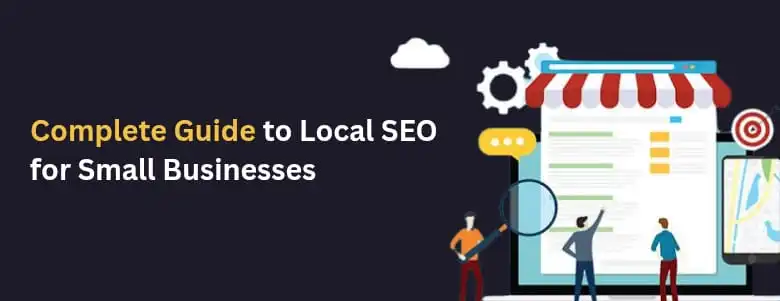Hyperlocal marketing focuses on customer locations that are very specific, such as a district or street, resulting in highly relevant marketing campaigns for consumers.
It builds trust, drives conversion, increases recall, and improves ROI as a result of less wasted spending.
Table of Contents
- What is Hyperlocal Marketing, and Why Is It Important?
- Hyperlocal Marketing Examples
- The Importance of Hyperlocal Marketing in 2025
- What is a Good Hyperlocal Marketing Strategy?
- Getting Started with Hyperlocal Marketing
- Hyperlocal Marketing Obstacles
- 8 Strategies for Hyperlocal Marketing
- Hyperlocal & Brick-and-Mortar Marketing
- Understanding Your Hyperlocal Audience
- Frequently Asked Questions (FAQs)
Hyperlocal Marketing Examples
Local SEO and Ads:
Enhancing your Google Business Profile and using geo-targeted advertising to support your brand can help you show up on “near me” searches.
Participating in Community Events
Supporting and being involved in your local community events and connecting with local businesses all contribute to creating a strong local energy.
The Importance of Hyperlocal Marketing in 2025
Increased “near me” search: More and more, mobile consumers are using their devices to find nearby recommendations.
Consumer Technology/Trends: AI, mobile applications, and geolocation technology have made personalized targeting easier than ever.
What is a Good Hyperlocal Marketing Strategy?
Key Elements
The key components are audience research, localized SEO, social media engagement, and personalized features.
Measuring and Returns
Measurement and analytics can utilize foot traffic, local leads, ad conversions, and customer reviews for measuring effectiveness.
Getting Started with Hyperlocal Marketing
Clarifying Your Objectives: Clarify your objectives brand awareness, sales, or engagement.
Select tools and platforms, including Facebook Ads, CRM platforms, geo-fencing platforms, and Google Business Profiles.
Hyperlocal Marketing Obstacles
Audience Reach: It could be difficult to scale with a smaller audience in a smaller area.
Privacy and Competition: Privacy is an issue with location data, and you have to deal with competition in your area.
Strategies for Hyperlocal Marketing
Ensure that your Google Business Profile is current.
A current Google Business Profile with correct company details, photos, reviews, and posts is essential. That way, all the essential information displays properly when people search locally and find your business on Google Maps. It will enhance your visibility and establish credibility.
Leverage Local SEO
Use keywords for your location, create content for regional topics, and claim your business within directory listings on online applications. All of these act as signals for your business to rank higher in “near me” searches and draw a local audience.
Engage with Geo-Fencing & Beacon Technologies
Geo-fencing creates virtual boundaries to target ads that will engage customers as they enter a certain location. Beacons can send push notifications when the individual is near your location to increase real-time engagement.
Utilize Location-Based Advertising
Websites like Google Ads and Facebook Ads make it easy to target very specifically, whether that is by zip code, radius, or landmark. This helps ensure the campaign is seen by the audience that is most likely to patronize the business.
Work with Local Influencers
Working with either micro or local influencers adds to credibility. Influencers have a built-in audience that trusts their opinion and recommendations, which helps your promotion to seem credible and based in the community.
Engage in Community Events and Sponsorships
You can help with long-distance competitions, sponsor youth teams, or host community events.This is good for your business, as it helps you engage with your local audience directly and establish your brand.
Develop Local Messaging Social Media Campaigns
Make use of posts, hashtags, or promotions that are specific to regional customs, holidays, or fashions. Your brand becomes more relatable as a result of encouraging customers to get more involved in your community.
Promote client testimonials and word-of-mouth
Word-of-mouth recommendations or customer reviews can build on your current clientele and expand your clientele. The reviews boost credibility and allow you to create organic awareness.
Hyperlocal & Brick-and-Mortar Marketing
Increasing foot traffic, special offers, promotions, and geo-targeted advertising helps bring customers from the local area into your brick-and-mortar store.
Online-to-Offline Sales:
Encouraging online users in your community to interact with your business online and then come to your physical location to convert, bridging the gap between virtual businesses and in-person brick-and-mortar sales.
Engage in Community Events and Sponsorships
You can help with long-distance competitions, sponsor youth teams, or host community events.This is good for your business, as it helps you engage with your local audience directly and establish your brand.
Develop Local Messaging Social Media Campaigns
Make use of posts, hashtags, or promotions that are specific to regional customs, holidays, or fashions. Your brand becomes more relatable as a result of encouraging customers to get more involved in your community.
Promote client testimonials and word-of-mouth
Word-of-mouth recommendations or customer reviews can build on your current clientele and expand your clientele.
Understanding Your Hyperlocal Audience
Customer Insights
Use surveys, analytics, and social listening to know local needs.
Personalization
Tailor content, promotions, and communication to resonate with cultural and area-specific preferences.
Want to build data-driven hyperlocal campaigns powered by advanced analytics?
Partner with Webgi Solutions we help brands turn customer insights into high-performing local marketing strategies.
Frequently Asked Questions (FAQs)
What distinguishes hyperlocal marketing from local marketing?
While local marketing is more focused on cities or larger areas, hyperlocal marketing is more focused on smaller areas, like neighborhoods.
What is the cost?
The cost can vary but generally, you can set a budget that fits your business, and small Budgets are allowed to start with digital ads and then increase the costs later on.
What tools are useful?
Geotargeting tools, Google Business Profile, Facebook Ads Manager, and HubSpot.
Author
-
Sushmita Tiwari describes herself as “a marketer by mind, not just by profession.” An MBA graduate in Marketing, she has spent the last 5+ years writing across niches—from technical deep-dives to lifestyle insights. Her blogs and journals stand out for their clarity, creativity, and ability to make every topic feel accessible and valuable.




